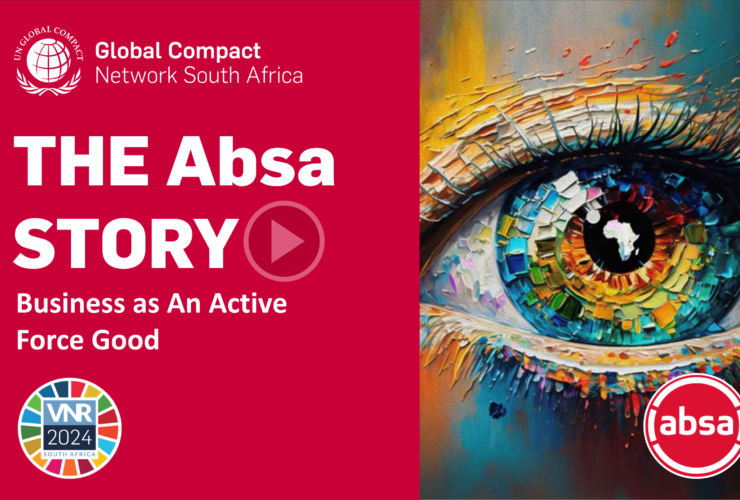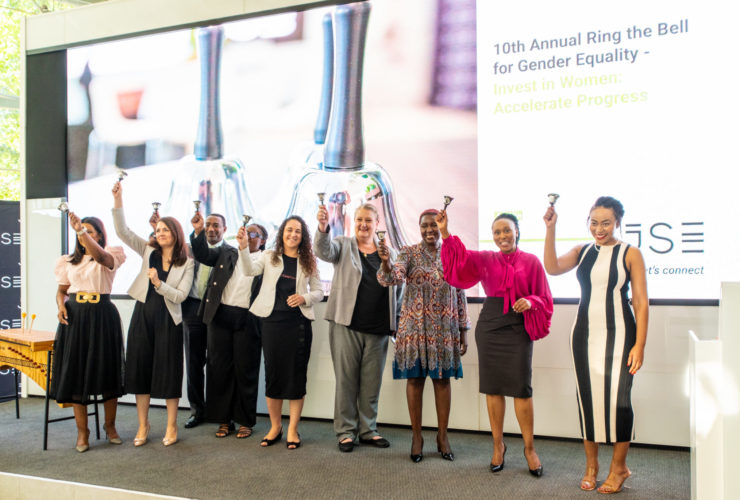Johannesburg, 16 June 2022. As South Africa commemorates Youth Day and reflects on the hardships and strides that the youth of 1976 took in challenging the Apartheid regime, it is also important to acknowledge the new challenges facing young people today.
The theme of this year’s Youth Day is “Promoting sustainable livelihood and resilience of young people for a better tomorrow.” This theme is especially relevant when considering that Youth unemployment in South Africa is at an all-time high. According to the Quarterly Labour Force Survey (QLFS), for the first quarter of 2022, the unemployment rate was 63,9% for those aged 15-24 and 42,1% for those aged 25-34 years, while the current official national rate stands at 34,5%. These statistics illustrate that there is an urgent need to address the state of unemployment in this country for a sustainable, inclusive, and transformed society.
In tackling the issue of youth unemployment, we must explore the opportunities that exist in a context of increased attention to key sustainability priorities such as climate change.
The Fourth National Climate Assessment warns that if we do not put a halt to greenhouse gas emissions, this will negatively disrupt the economy. “Warmer temperatures, sea-level rise, and extreme weather damage property and critical infrastructure, impact human health and productivity, and negatively affect sectors such as agriculture, forestry, fisheries, and tourism.” The economic effects of climate change were made clear with the KZN floods that occurred in April 2022. The damage cost the government between R2.6 billion and R2.9 billion.
Our solutions lie in achieving global net-zero and this requires unprecedented economic, industrial, and technological transformation in all countries. It calls for a major shift out of high carbon to low carbon economies.
South Africa has embraced the Just Transition; an evolving concept that entails that the move towards a low carbon economy takes into account the history of South Africa and the legacy of inequality and poverty. In progressing to a low carbon economy, a just transition requires that negative impacts on jobs, supply chains, and communities or certain sectors of the economy are addressed; and the benefits shared equitably.
Transitioning to a low-carbon economy has the potential to increase job opportunities. According to the International Renewable Energy Agency, 10.3 million people around the world, 5.3% more than the previous year, had green jobs. It asserts that in the coming decade, this number could rise to 18 million worldwide.
Most of these opportunities should benefit young people to reduce high levels of youth unemployment, with the government providing the enabling policies and business innovating and opening up opportunities for youth.
The Global Compact Network South Africa supports companies to understand how to accelerate the journey and take more ambitious actions on climate. One of the various programmes that the Network offers is the Climate Ambition Accelerator Programme. It aims to scale-up credible climate action across companies of all sizes, sectors, and regions, enabling them to deliver on meaningful commitments to reduce emissions at scale. The Accelerator builds on the UN Global Compact’s work to develop and promote the Science Based Targets initiative, its net-zero standards, and Business Ambition for the 1.5°C campaign and contributes to initiatives such as the Race to Zero campaign.
Additionally, in an effort to address climate change and promote sustainable business, the United Nations Global Compact developed the Just Transition Think Lab. This Think Lab aims to unravel the rationale of what it means for a company’s business strategy to support and engage in Just Transition. It comprehends the importance of forming partnerships with local governments, unions, and the private sector to support affected communities and people by generating green jobs as well as a system-wide transformation. Its objectives include:
- Shape and define business and thought leadership on critical areas linked to just transition.
- Address key business challenges and identify policy advocacy opportunities as well as good business practice.
- Scale-up learnings and deliverables and incubate time-bound future programmes to help increase uptake of just transition across sectors and regions.
The transition to a low-carbon economy is a multifaceted process that not only serves to promote economic development but also aims to address and resolve sociological issues such as social inclusion, gender equality, public health, and improved accessibility, to name a few. Partnerships between the public and private sectors are especially important for the smooth and successful transition to a low-carbon economy.
For more information contact Sigcino Ndlela at Sigcinon@globalcompactsa.org.za






